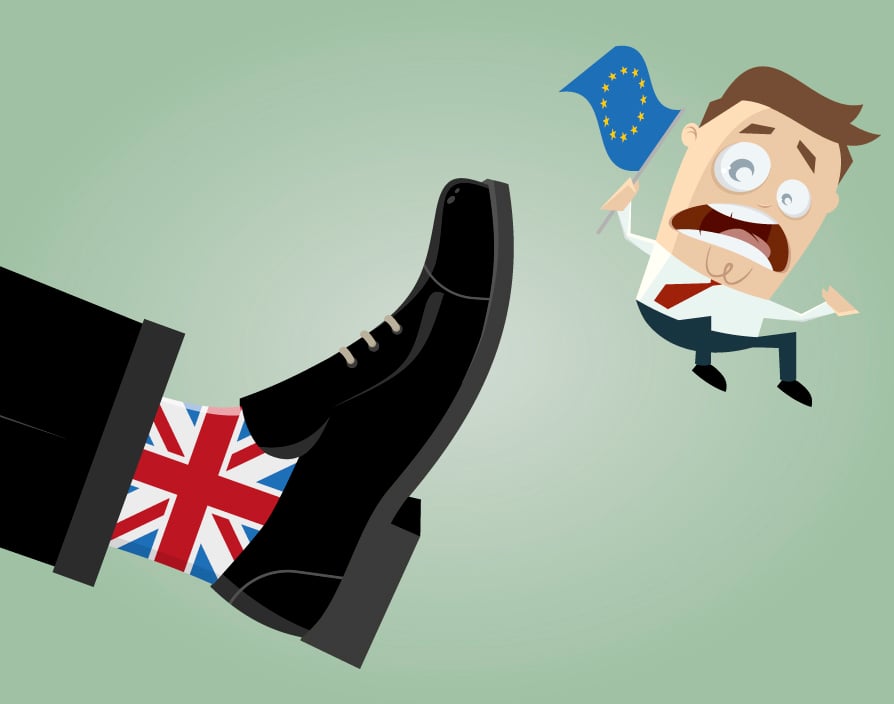After a ferocious campaign in which both the leave and remain campaigns made compelling arguments, the electorate has finally had their say. Following yesterday’s referendum, it is now clear that the Brexit will be happening after 52% of the population elected to leave the EU. Having lost the referendum, prime minister David Cameron announced his resignation.
“I was absolutely clear about my belief that Britain is stronger, safer and better off inside the EU,” he said. “I made clear the referendum was about this and this alone not the future of any single politician, including myself. But the British people made a different decision to take a different path. As such, I think the country requires fresh leadership to take it in this direction.”
He promised to do everything he could to “steady the ship” in the upcoming weeks and months. While not offering a timetable, Cameron said his successor would be in place by the start of the Conservative party conference in October but there are some who’d rather have seen him stay.
“I’m disappointed that David Cameron has chosen to step down instead of providing leadership through the next turbulent few months,” said Frances Dickens, CEO of Astus Group, the media barter firm. “I’m delighted that UK voters have chosen opportunity over fear. Today marks the launch of UK plc: we are the fifth largest economy in the world and we can now hone our competitive edge free from the restrictions of Brussels.”
Yet not everyone shared Dickens’ cheerfulness. “I’m in absolute shock,” said Leigh Ashton, CEO and co-founder of Sasudi, the sales consultancy. “For small business owners, this is the worst possible result. Every small business owner I know is devastated. The outcome closes the world to business.” Blaming the Remain campaign’s lacklustre performance, she predicted that UK businesses are in for difficult times ahead. “I pray our worst fears are unfounded.”
Mark Mitchell, CEO of Meridian Business Support, shared her concerns: “Brexit will have a major impact on startups and businesses. The economic impact will be damaging as we have cut ourselves off from a valuable source of skilled labour and we may have cut ourselves off from the single market.”
And the markets seemed to share his pessimism, with the sterling tumbling by 10% against the dollar to its lowest point in 31 years, making Britain poorer than France in one fail swoop. However, Alex Edwards, head of the dealing desk at UKForex, the currency transfer provider, believed this morning’s slump to be just the beginning. “We’re going to see an exceptionally volatile day in the currency markets and the big moves won’t just be restricted to the pound,” he said.
With the UK suffering skills shortages in the STEM sectors, several business leaders expressed concern that a Brexit will prevent them from bridging the talent gap. “Leaving the EU at a time when the UK is in need of skills will be a huge blow to UK businesses, let alone the commercial opportunities that may be lost and could consequently stunt UK startup growth,“ said Bhuwan Kaushik, CEO of Spectromax, the technology consulting firm.
Simon Walker, director general of the Institute of Directors, added that it was not just a question of recruitment but of retention as well. “One thing the government must do immediately is to guarantee the right to remain of EU citizens currently in the UK,” he said. “Companies do not want to have to worry about losing valued staff.”
By contrast, Phil Foster, managing director of Love Energy Savings, the energy price-comparison company, believed a Brexit would give UK recruitment a power boost. “There is a very real possibility that the UK may now introduce a points-based system, such as that used in Australia, which could result in us welcoming in higher-quality candidates,” he explained.
Considering that over half the country voted for the Brexit, it is not surprising that some SMEs look to the future with hope. “A UK leave vote could put the country on the world stage again, making headlines out of curiosity if nothing else, said Patrick Tonks, owner of Great Bean Bags. “If that means that manufacturers like me will be able to sell more goods to the world as a result that will be a big benefit.”
Others said they were certain that London will remain the financial centre of the UK. “It took decades to develop the infrastructure of firms, services, lawyers, insurers, intermediaries and myriads of financial niches and massive personnel base that makes London special,” said Mike Laven, CEO of the fintech startup Currencycloud. “Talk to European tech entrepreneurs and they are concerned about being cut off from London’s resources. Will it get more difficult – of course. But with our contingency plans in place, we’ll avoid the doomsday scenarios.”
Let’s hope their optimism is borne out in the months to come. ![]()
Share via:


















































